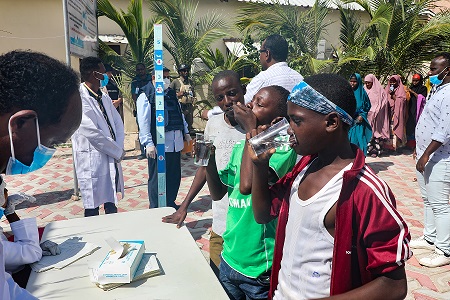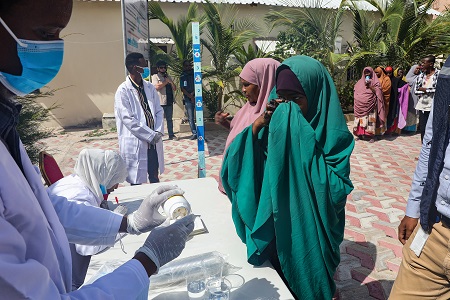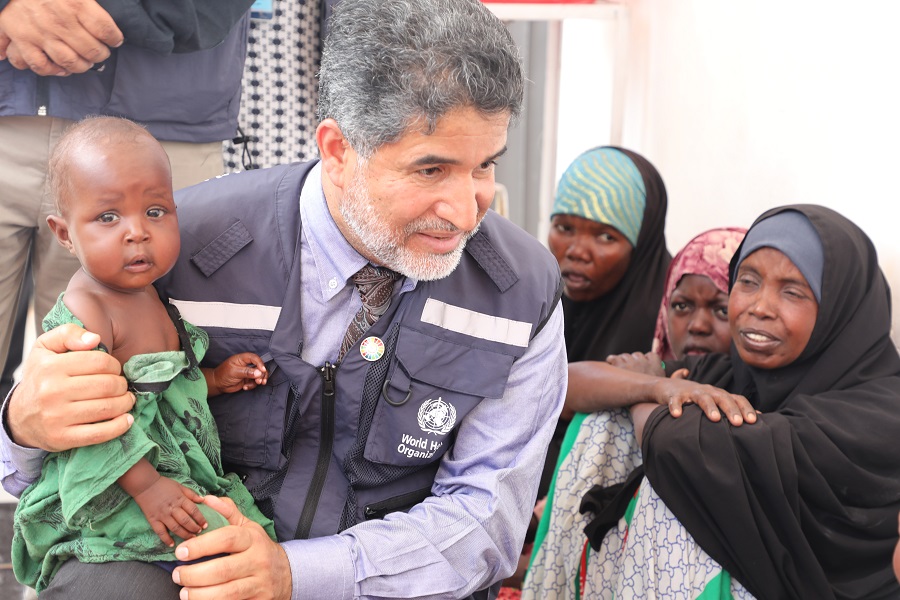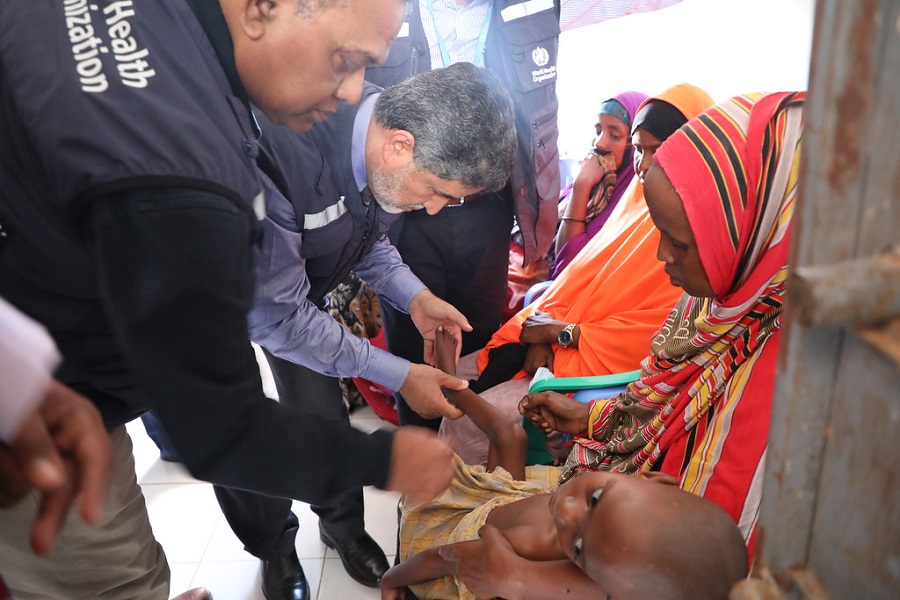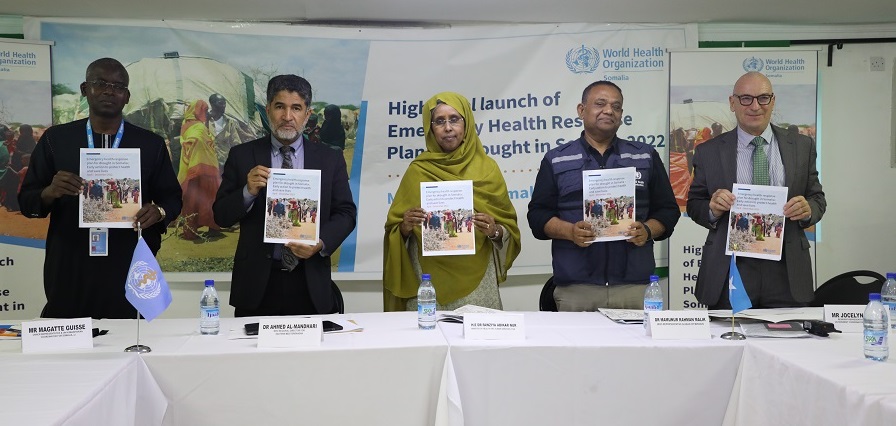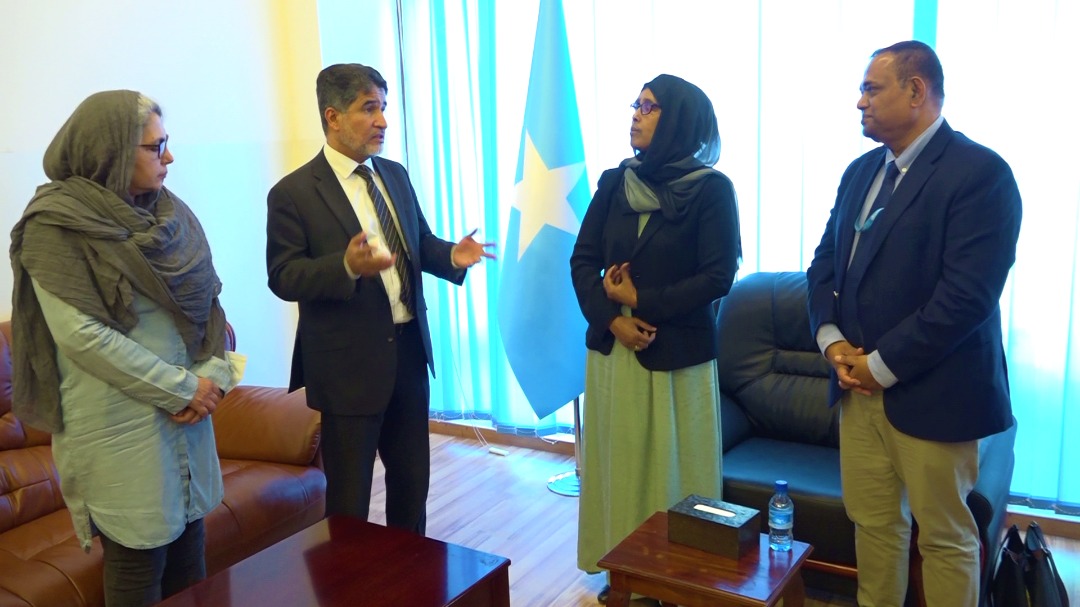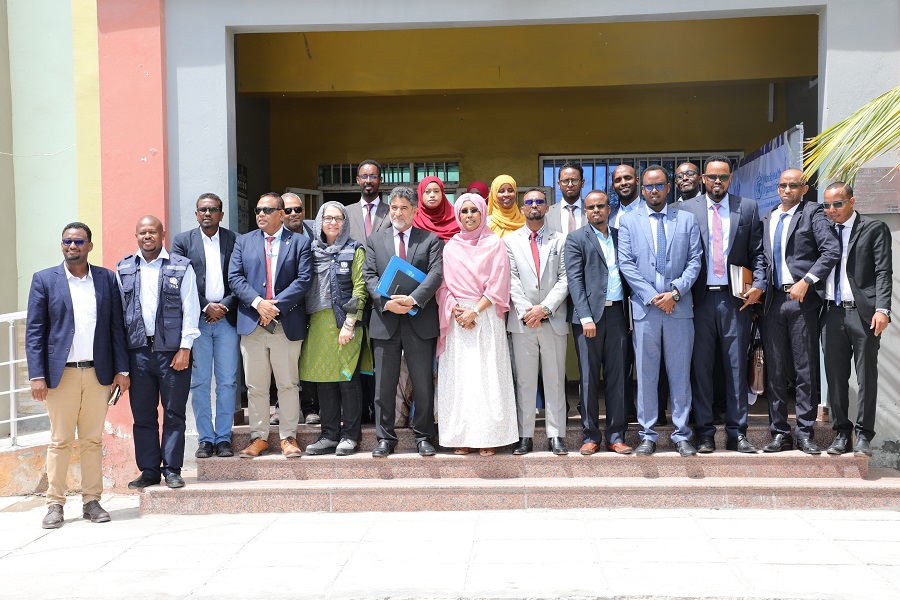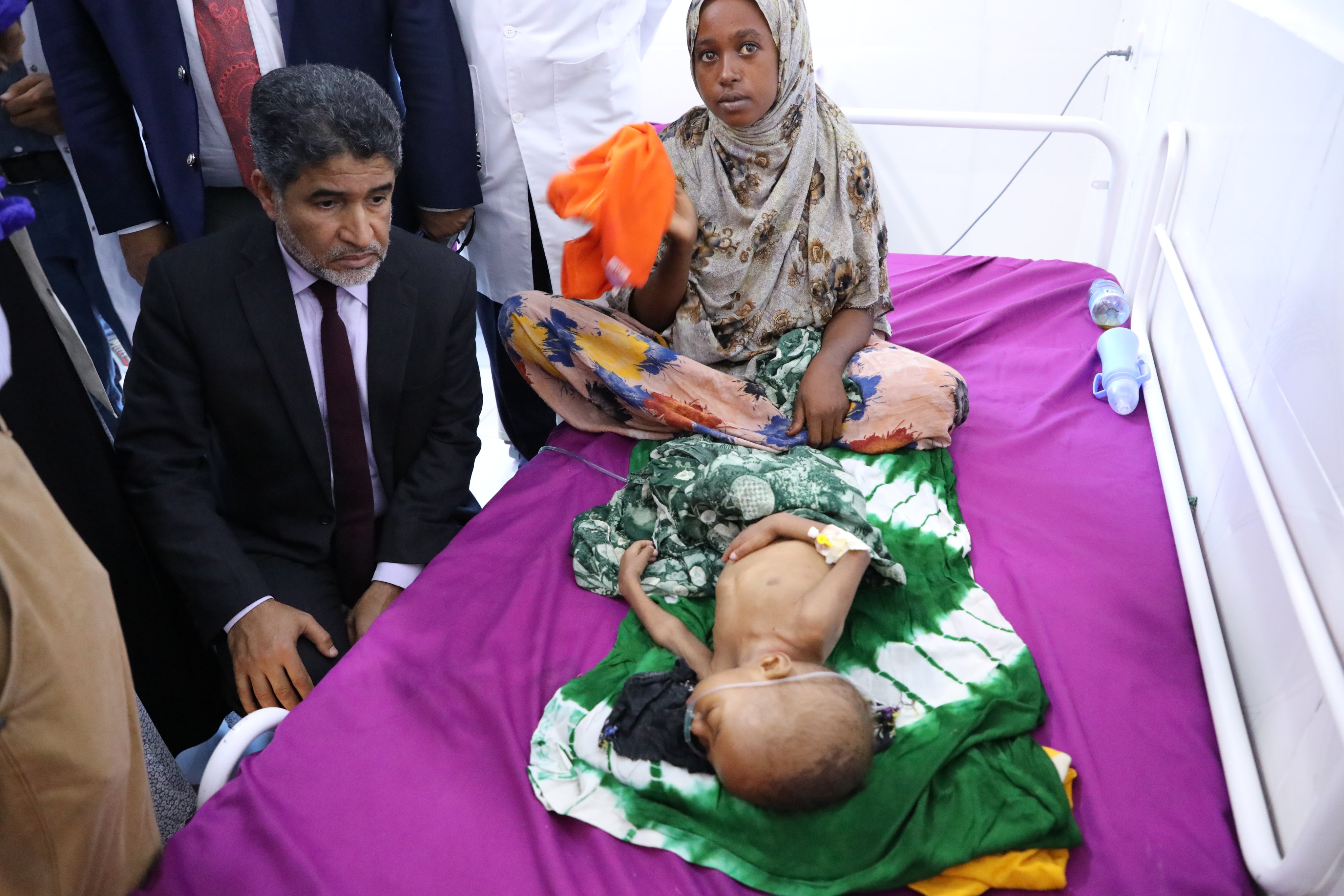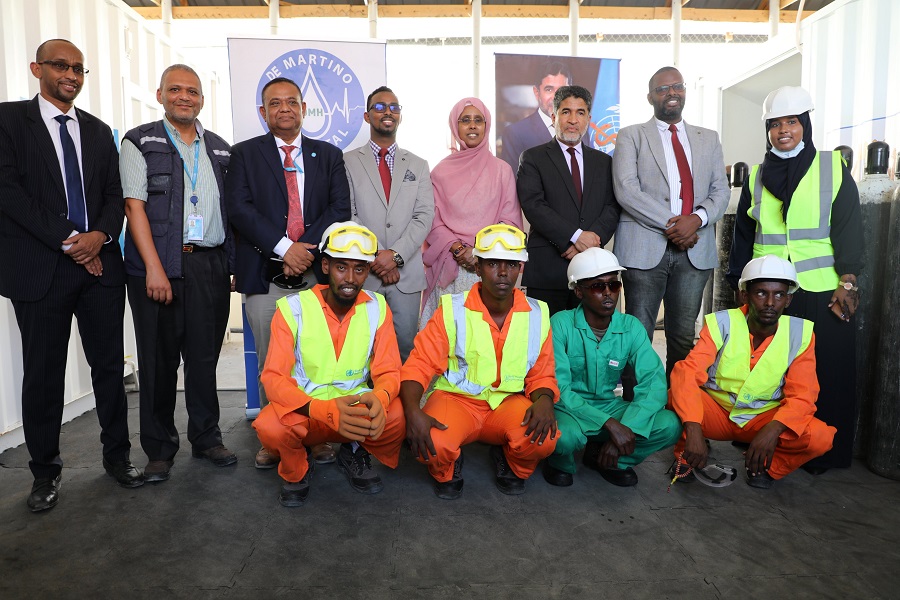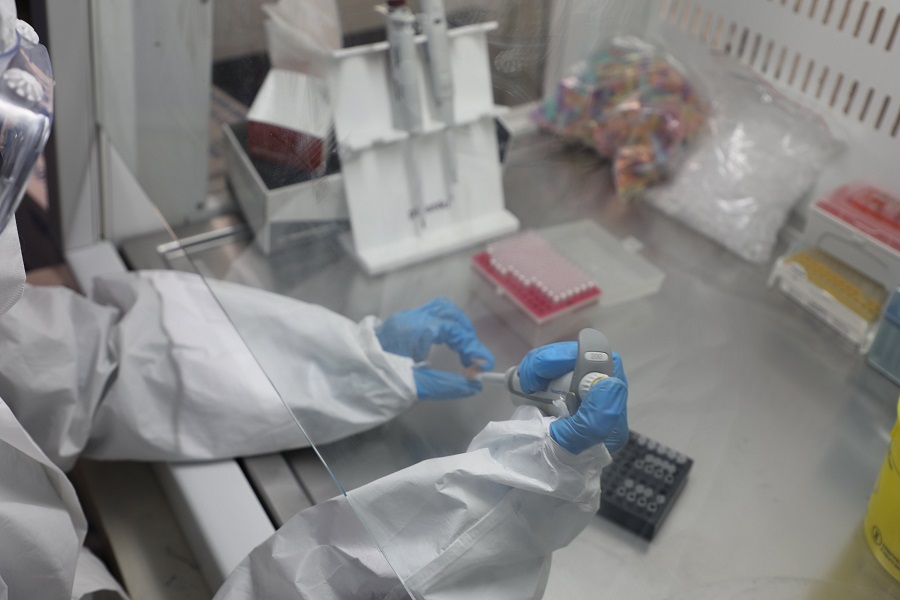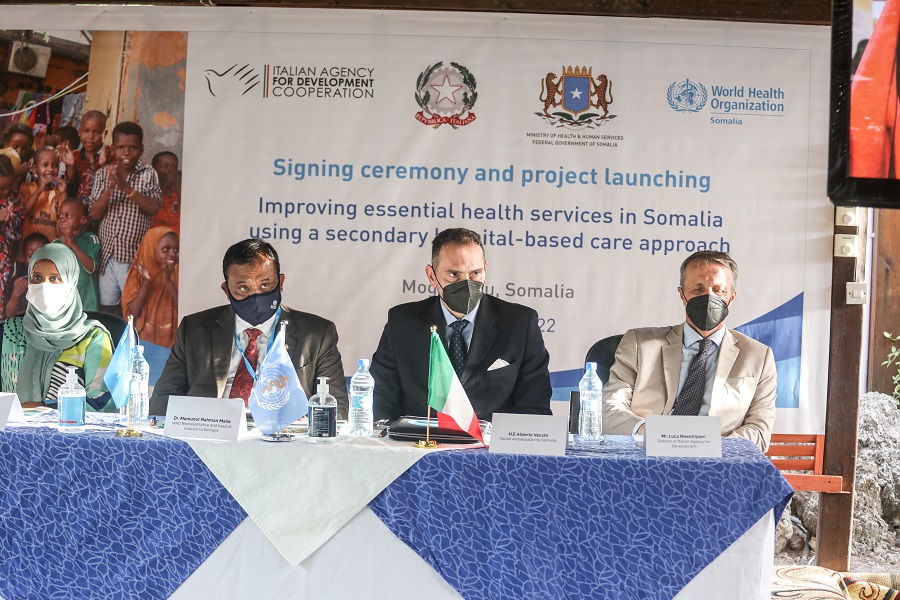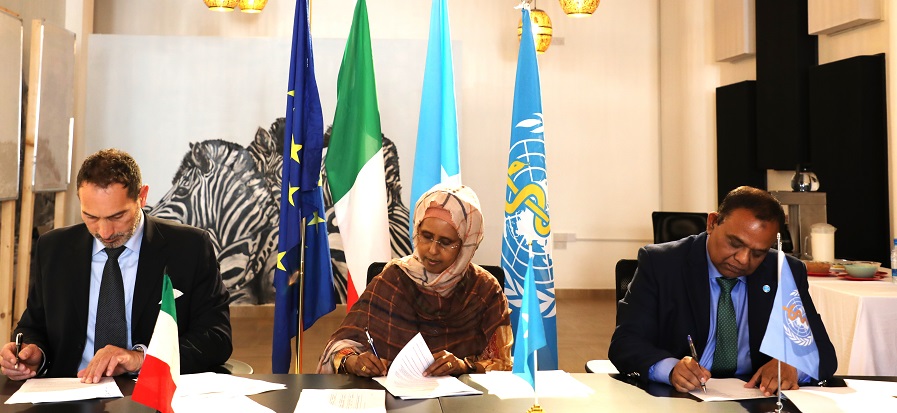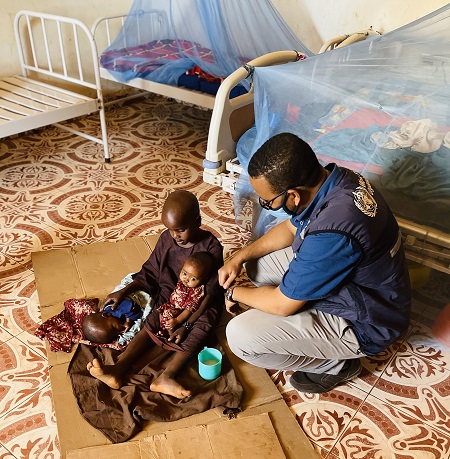 WHO has been supporting the Government with life-saving supplies for children with severe acute malnutrition and medical complications (Baidoa, 2022). Credit: WHO/Somalia
WHO has been supporting the Government with life-saving supplies for children with severe acute malnutrition and medical complications (Baidoa, 2022). Credit: WHO/Somalia
30 May 2022 – Fatima Ahmed Ali and her one-year-old son Abdullahi are just two of many Somalis whose lives have changed due to the ongoing drought in Somalia. This drought is reported to be one of the worst in recent history. Yet, they are among the lucky ones to have received timely medical attention.
Living as a pastoralist in a rural area in Gardo, Puntland, Fatima says they are used to seeing droughts come and go, but this one has been severe. Neighbours are trying to help each other as families are losing all their livestock, while children everywhere are suffering from diseases, many of which are preventable. Several families have no money to support their loved ones, and some do not know where to go if they have nutrition-related health problems, she explains.
Stabilization centres address complications
In April 2022, when Abdullahi fell really ill, a family member took Fatima and her son to a health centre nearby, in Yako. From there, a health worker directed them to the Gardo Stabilization Centre for specialized attention.
At stabilization centres like the one Fatima visited, trained health workers assess the condition of patients, particularly those who are suffering from severe acute malnutrition with medical complications. They stabilize the condition of these severely acutely malnourished children with appropriate feeding, micronutrient supplementation, correction of dehydration status, and appropriate treatment and care for medical complications. WHO is supporting 53 such stabilization centres across the country to treat severely acute malnourished children with medical complications. WHO’s support includes training of health care workers on the clinical management of patients and organization of stabilization centres, provision of appropriate medical supplies, such as the severe acute malnutrition kits, and ensuring and monitoring quality of care. In 2021, a total of 14 430 children under 5 received treatment in these stabilization centres, with a 95% cure rate.
“Abdullahi was not eating at all before we got here. He had a fever and could not even sleep. I felt really helpless,” said Fatima. “I am grateful for the support he received at the stabilization centre. After taking medication, Abdullahi was able to rest and eat again.”
Fatima hopes to see conditions improve in Somalia, where every year communities face natural disasters. WHO’s support to these stabilization centres is saving the lives of thousands of malnourished children who have had medical complications in Somalia, like the son of Fatima.
WHO provides life-saving critical support to save lives
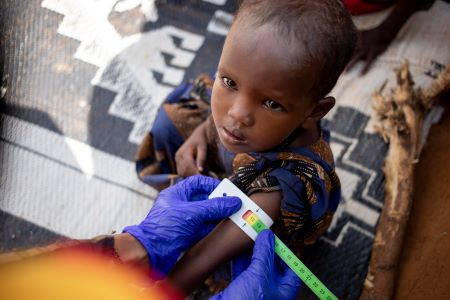 Credit: WHO/SomaliaThe current food insecurity situation in Somalia owing to drought continues to worsen. Four consecutive failed rainy seasons and increasing economic pressures are deepening the severity of needs and driving the country to the brink of famine. An estimated 49% of the population – 7.7 million people – require some form of humanitarian or protection assistance, of whom 6.13 million are estimated to be affected by the drought.
Credit: WHO/SomaliaThe current food insecurity situation in Somalia owing to drought continues to worsen. Four consecutive failed rainy seasons and increasing economic pressures are deepening the severity of needs and driving the country to the brink of famine. An estimated 49% of the population – 7.7 million people – require some form of humanitarian or protection assistance, of whom 6.13 million are estimated to be affected by the drought.
Of these 6.1 million people across the country who are food insecure, including nearly 1.7 million who are suffering from extreme levels of hunger, an estimated 1.4 million children under 5 and more than 250 000 pregnant and lactating women will need treatment and care for malnutrition.
WHO’s current drought response operations, including its critical life-saving support is funded by the Central Emergency Response Fund (CERF), the European Union and WHO’s Contingency Fund for Emergencies (CFE).
At the household level, due to the ongoing drought in Somalia, WHO supports community health workers to visit families to determine who needs urgent support. In drought-affected areas, they measure the circumference of children’s upper arms to assess their levels of malnourishment, and whether they need to visit stabilization centres for medical attention.
“Currently, 1.4 million Somali children are known to be acutely malnourished. The support we are providing has reduced the number of deaths caused by medical complications related to severe acute malnutrition. We have also stepped up our life-saving critical support while responding to this drought, such as expanding access to essential health and nutrition services at the community and primary health centre level, as well as keeping a vigilant eye on diseases that are evolving in epidemic proportions and containing them at source. However, WHO has a funding gap of close to US$ 39 million between now and the end of the year to support, maintain and scale up our life-saving operations. Closing this gap will mean that we are able to prevent excess deaths in a fragile setting suffering one of the worst humanitarian crises in their lifetime,” said Dr Mamunur Rahman Malik, WHO Representative to Somalia and Head of Mission.





